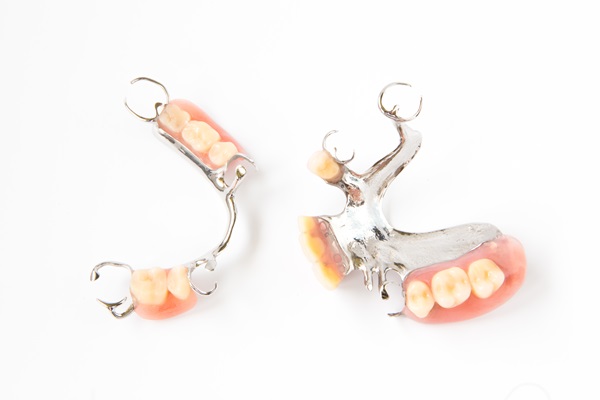When a Broken Tooth Will Require a Root Canal

A broken tooth can result from severe decay, cracks, or trauma. Continue reading to learn whether a dentist will recommend a root canal during the repair process. A broken tooth means a portion of the tooth’s structure above the gum line has come off. You should schedule a dentist appointment immediately after the incident to have the tooth checked. In many cases, the tooth will require a dental crown for support. This article will explain the basics of root canal therapy and how often dentists use it to treat dental injuries. Plus, you will learn when to schedule a dental appointment after the break occurs.
Root canal treatment for a broken tooth
Dentists commonly perform root canal therapy for broken teeth. The possibility of the procedure depends on the type of breakage and the condition of the remaining tooth structure. The type of tooth affected also determines the probability of root canal therapy. A root canal is an effective treatment for a broken tooth. It can help preserve the tooth while preventing further damage.
The causes of breakage for a front-row tooth often differ from those for the back teeth. The most common cause of front-tooth fracture is trauma or physical injury. A root canal will not be necessary for fractures where the tooth pulp is not affected, except if patients show signs of pulpitis (pulp infection). However, a root canal will be necessary if the pulp gets exposed due to breakage.
Sometimes, a dentist can perform a root canal on a front tooth and some premolars as a preventive measure. For example, if the dentist thinks the tooth requires a crown but lacks adequate healthy tooth structure, they will perform a root canal before crown placement. The dentist often places a post down the now-empty canal in the tooth roots. A rubber-like material called gutta-percha covers the posts to create enough surface and support for the tooth structure to hold the dental crown. The placement of posts inside a tooth is only possible after removing the blood tissues and nerves.
In rare cases where the breakage happens on the root and not the crown, treatment is not possible except when the fracture occurs closest to the root tip. Then, an advanced treatment such as an apicoectomy, often referred to as a root-end resection, will be performed instead of a root canal. However, the dentist will still remove the nerves.
Treatment for back teeth
Back teeth often break due to severe tooth decay, failed restoration, or old tooth fillings. Since these teeth are larger than front teeth, post-placement is usually unnecessary. Instead, dentists typically perform a root canal on the back tooth if the nerves are exposed or if removing decay will expose the pulp. The extent of the breakage will determine if a root canal is possible. If the fracture reaches below the gum line or affects the tooth roots, the dentist will perform a necessary tooth extraction.
The roots of the back teeth hardly break compared to the front teeth. Therefore, even if it happens, a dentist can remove the root in order to save the tooth. However, root removal is only possible for teeth with multiple roots, such as molars.
Root canal aftercare
The aftercare routine following a root canal is crucial to avoid another broken tooth. We recommend that patient follows these basic tips to ensure long-lasting results:
Avoid chewing on hard objects or food such as ice cubes
Develop a good and consistent oral hygiene routine (brush and floss at least twice a day)
Avoid smoking and chewing tobacco products, as they carry bacteria that could infect the pulp chamber of the mouth
We will recommend specific tips for the patient to follow regarding their recovery over the next few days after the procedure during their appointment.
In summary
Dentists perform root canal treatment to save a broken tooth and restore its health and function by removing the infection. Even if there is pulp exposure or severe decay, removing the pulp will make dental restoration with a dental crown possible. If you have broken a tooth or feel any pain in your mouth, contact our dental office immediately to schedule an appointment for treatment. The sooner we are aware of the problem, the better chances we have to correct the condition before it progresses into more severe consequences.
Request an appointment here: https://sandimassedation.com or call San Dimas Family and Sedation Dentistry at (909) 305-2300 for an appointment in our San Dimas office.
Check out what others are saying about our dental services on Yelp: Root Canal Treatment in San Dimas, CA.
Recent Posts
Root canal therapy is a procedure that allows dentists to save severely decayed, damaged, or infected teeth. The root canal procedure involves going to the pulp chamber of a tooth to remove the nerves, blood vessels, and connective tissues there. This brings an end to infections and protects against them. It also stops any pain…
A root canal is a procedure that can both relieve pain and prevent tooth loss, and nowadays, root canals are a common and painless procedure. If your tooth becomes injured or infected, bacteria can build up the inside of the tooth where the pulp and nerves reside. Left untreated, pain and sensitivity may become severe,…
The Greek words "endo" and "odont" stand for inside and tooth, respectively. An endodontic treatment or root canal treatment treats the inside of a tooth. If the pulp of the tooth becomes infected or inflamed, endodontic treatment becomes necessary. Root canals are typically suggested when a dentist believes the tooth is worth saving. Before treatment,…
It is important to treat a dental emergency as soon as possible to prevent any concern from worsening. This review discusses the different types of dental emergencies and how you can properly treat them.A dental emergency does not improve on its own. Fortunately, emergency dentists are able to treat oral health and dental trauma concerns…


